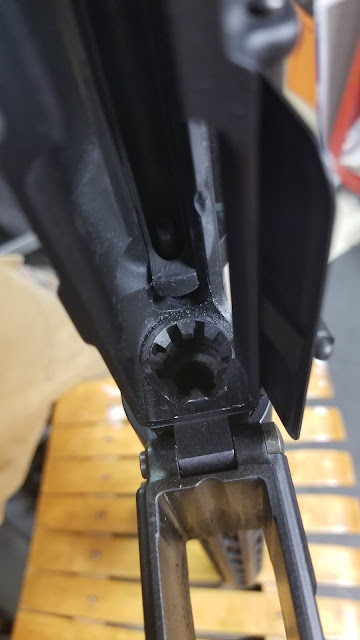The United States' Gun Rights Debate
Disclaimer: I don't think that it is a secret that I am pretty pro-gun. However, I want to do my best to give the other side a fair shake. I will try to give a fair overview of the anti-gun side. I think that it is important to have healthy debate within a democratic society. Also, if your ideas do no hold up to scrutiny, maybe they aren't the best ideas and there is room for improvement.
Introduction:
Gun rights in the United States have been a topic for debate for decades. Since as far back as the early 20th Century, the US has grappled with the question of what its citizens should be permitted to have, what kinds of people should own guns, and generally just what limits the US should put on its citizens. The gun debate has become a partisan issue along the lines of the abortion debate. Conservatives tend to favor fewer limitations on gun rights, whereas progressives tend to favor more regulations surrounding the 2nd Amendment. I'm going to do my best to go over both sides of the debate, as well as some of the strengths and weaknesses of each sides' position. Lets get into it.
Details:
The gun rights debate a uniquely American issue, because we have our 2nd Amendment of our Constitution that reads:
"A well regulated Militia, being necessary to the security of a free State, the right of the people to keep and bear Arms, shall not be infringed."
The second line that comes up in the debate is "the right of the people to keep and bear arms". For conservatives or pro-gun people, it is typically read as, "the right of the PEOPLE to keep and bear arms". This is because Conservatives really emphasize that this right pertains to the entire citizenry of the US. This is where you get a lot of back and forth within the gun debate. Progressives emphasize the militia, whereas conservatives emphasize the right of the people. The Supreme court, in this case, has held up the more conservative reading. The famous "Heller Decision" held up the idea that the 2nd Amendment affirms an individual right to bear arms.
Finally, the phrase "shall not be infringed' has become a sort of call to action against any and all firearms regulation. Many extreme pro-gun people rally around this wording to propose the idea that all gun laws are illegitimate. The idea behind this is that the 2nd Amendment is designed to provide protection against government tyranny, so allowing government to regulate arms at all is inherently flawed. I have heard it described as allowing cancer to decide the type of treatment it receives. Now, no matter what your views on this are, it is important to acknowledge that there are a whole lot of people that hold very strongly to this idea.
The Gun Debate in Current Events:
If you want a clear picture of the divide between the Progressive and Conservative camps when it comes to the gun debate, just look at Virginia now. Right now, Virginia has a fully democrat controlled government. They have used this majority to pass legislation that doesn't need to appeal to any republican legislators for votes, so it can be a vert left-leaning agenda. There are some very far reaching gun and gun training regulations on the table for 2020 that have been strongly opposed by the rural portions of the state but are popular in the big cities. There is such strong rural opposition that more that 30 Virginian counties have voted to become '2nd Amendment sanctuaries' in direct opposition to the state government. This has lead to state government officials floating the idea of sending in the national guard into these counties to enforce the law if necessary.
This just goes to show how far apart the left and right are on the gun issue. The Virginia issue has serious potential for violent escalation should the state government seek to enforce the law on these rebellious counties.
 |
| Bundy supporter during Bundy Ranch Standoff |
Conclusion:
I think that the gun debate speaks to a larger divide in America society. There are those that seek to be responsible for their own defense, and those that are okay with, or are able to, pass that responsibility on to the government. I think that a lot of Progressive legislation unwittingly functions to alienate people in rural and semi-rural communities that pride themselves on self-reliance. Imagine how a farmer who has never had run-ins with the law and has kept to his own would feel seeing legislation be passed that criminalizes him for owning an AR-15 or selling one to his son. It would not be good. Reasonable people can be driven to do unreasonable things when it becomes harder and harder to do things by the book.



Comments
Post a Comment